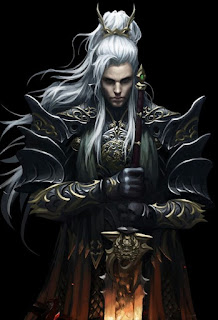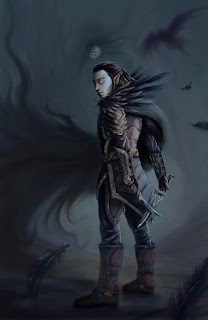For new players, it can be hard to choose your first class. For veteran players, it can be hard to choose a class and not fall into stereotypes everyone's seen a thousand times. So now I'm going to deconstruct the 5E Player's Handbook classes (Sorry Artificer, you'll come later) and talk about what works, what doesn't, and some interesting ways to play the classes.
I won't be going into game mechanics as much as I'll be going into roleplay.
Let's talk about Paladins!
What is a Paladin?
The knight in shining armor, the paladin is a hero of the realm. He's the exemplar of bravery who charges the dragon to save the princess, who rides into battle on a magnificent horse with a lance looking for the next evil to defeat.
Historically the first paladins were a group of knights that served Charlemagne, the first king of England, during his reign. After that they're mainly referred to as the leaders of righteous crusades and hero princes and kings. In modern times paladins have fallen mainly into the realm of fiction, ascribed to King Arthur's court and fairy tales.
In the Game
In game paladins are the military wing of church organizations, their purpose to slay evil and bring the glory of whatever gods or ideals they swear allegiance to. Paladins who perform acts against their oaths can lose their power and become fallen paladins, which are evil counterparts to their former brethren.
Some Dungeons and Dragons history: Once upon a time back in 3/3.5 paladins were required to be lawful good, and with their strict moral code players tended to play the paladins as overzealous bullies who confuses righteous indignation with pure stupidity and often would get the party in more trouble than they were worth. I went into detail about lawful good before but suffice it to say this is not how lawful good works. Because of this and other game restrictions the paladin has gone out of favor with players, despite them being more open in 5th edition.
Breaking the Trope
The paladin in 5e is a far more versatile class and can be a huge help in a party without having to be lawful stupid. The key is to remember that a moral code doesn't mean a person is ignorant or stupid, they're just devoted and have lines they refuse to cross.
Defender of Alternate Faiths
Paladins tend to follow the pattern of knights of the round table, but what if the paladin's order protects the arcane instead? How about a paladin for a god of death? Look into alternate deities and find what would make a person devote their lives to protecting an ideal that's not the standard coded Christianity.
Defender of Home
A hero of a city or for a nation is one thing, but what about the village hero? Imagine a cute halfling village who has a diligent protector, a paladin of Hobbiton if you will. Maybe they're adventuring to bring wealth back to their village, or get revenge on the person who destroyed the same, or the villain came from their quaint hamlet and the paladin must now take out the villager they once failed.
Ronin
A wandering hero with no name, righting wrongs wherever they go, on some personal quest for redemption makes for a cool character and would be a great fit for a paladin (or a fighter or a ranger). No idea how they'd fit into a campaign with a bunch of other traveling weirdos but that's for the player and DM to decide.
Famous Paladins
Vax'ildan (Critical Role)
Starting the game as a rogue, Vax later cross classed into paladin of the Raven Queen, a death goddess. The cross class was an interesting character development and worked perfectly with the sneaky assassin's style.
Guts (Berserk)
An anti-hero with a giant sword, Guts wields a blade that absorbs energy from all the evil things he's killed, trapping them forever from coming back. Since he has a brand on his neck that attracts demons and monsters, that blade gets fed often. He wanders trying to help who he can while keeping an eye out for a way to get rid of the brand.
Trevor Belmont (Castlevania)
Okay full disclosure: I have never played a Castlevania game, but I absolutely love the show on Netflix. Trevor is a swearing drunk who upholds his family tradition of being a monster hunter. He teams up with Alucard, the son of Dracula because he's smart enough to understand that the enemy of my enemy is my friend concept.
The Jedi Order (Star Wars)
All of them. They're all paladins. Anakin is a fallen paladin and the rest are just vanilla Walmart brand paladins.
-JOE





No comments:
Post a Comment